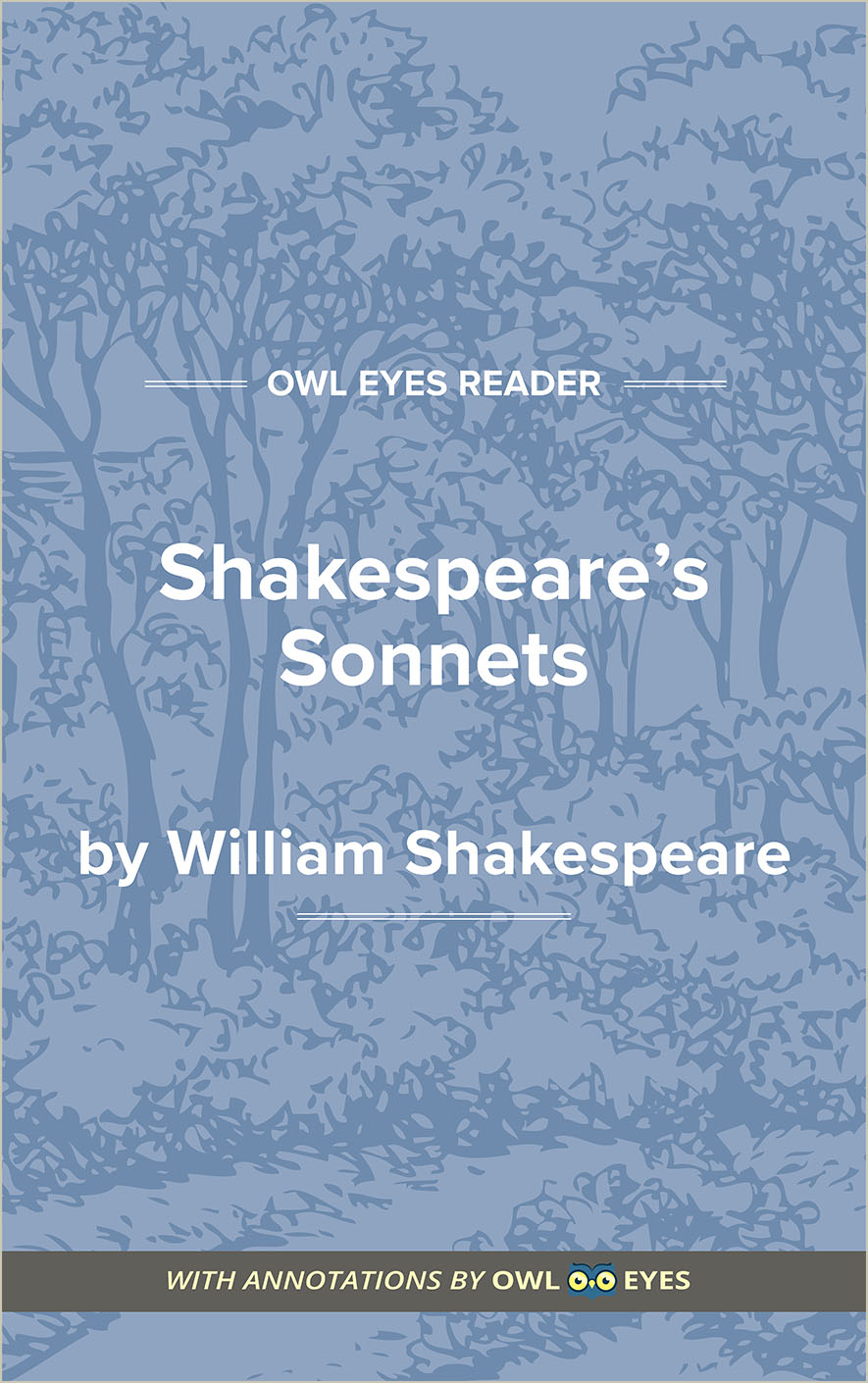- Annotated Full Text
- Literary Period: Renaissance
- Publication Date: 1609
- Flesch-Kincaid Level: 12
- Approx. Reading Time: 1 hour and 29 minutes
Shakespeare's Sonnets
In addition to his prolific work as a playwright, William Shakespeare produced some of the most enduring poetry in the English language. Shakespeare’s greatest accomplishments as a poet can be found in his sonnets. Through the fourteen-line love poem, Shakespeare ruminated on the deepest literary themes: the fleeting nature of human life, the redemptive power of love, the transcendence and futility of the artistic endeavor. First published in 1609, the sonnets are inescapable in their influence but widely misunderstood. Some of the lines—“Shall I compare thee to a summer’s day?”—have entered the popular culture as shorthand for romantic sentiment. The work, however, is complex. Most of the sonnets are not addressed to a woman, but to a teenage boy. It is unclear whether the sonnets are autobiographical and, if so, who the fair youth might be. Shakespeare appears to have had no hand in publishing the poems. Following his own vision, printer Thomas Thorpe assembled and distributed the poems. The arrangement, typesetting and punctuation of the sequence all distance us from Shakespeare’s original verse. Shakespeare’s form is part of a much larger sonnet tradition in England that arose out of the 14th-century Petrarchan Sonnet. Though Sir Philip Sidney’s Astrophil and Stella made the sonnet a literary vogue in the 1590s, the English form of the poem is referred to as the Shakespearean Sonnet because this odd collection of 154 poems was the most widely read English sonnet sequence. But does this popularity derive from the mastery of these sonnets or the poet’s fame? The sequence’s narrative is puzzling. For 126 poems, the speaker agonizes over his love for the fair youth, then abruptly turns his attentions to a “dark lady” with whom he shares a lustful relationship. Despite the irregular narrative (or perhaps because of it), Shakespeare continues to captivate and bewilder audiences with his breathtaking language and poignant imagery.
- Annotated Full Text
- Literary Period: Renaissance
- Publication Date: 1609
- Flesch-Kincaid Level: 12
- Approx. Reading Time: 1 hour and 29 minutes

